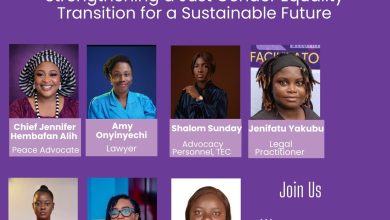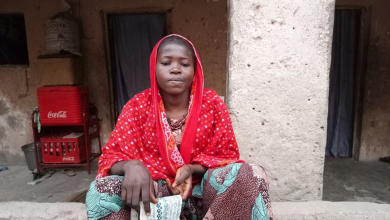NFM Contributes to UN Call on Sale, Abuse, and Sexual Exploitation of Children

|
Getting your Trinity Audio player ready...
|
Naija Feminists Media (NFM) has made a significant contribution to the United Nations’ call for input on Protecting Children from Sale, Sexual Exploitation and Sexual Abuse: Progress, New Frontiers and the Path Forward.
The submission, titled “Surrogacy Violates Child Rights, Facilitates Sales of Children,” aligns with the UN Special Rapporteur’s preparations for the final report on the issue. The UN report is to be presented at the 61st session of the Human Rights Council in February–March 2026, pursuant to Human Rights Council Resolution 52/26.
The current Special Rapporteur, Mama Fatima Singhateh, who began her mandate on May 1, 2020, is expected to complete her six-year tenure in April 2026. Her final report will reflect on progress made toward preventing and eliminating child exploitation, identify remaining challenges, and provide direction for her successor.
In its submission, Naija Feminists Media (NFM) urged the Special Rapporteur to recognise surrogacy as a form of violence and exploitation against children. Surrogacy is a reproductive arrangement in which a woman, known as the surrogate mother, agrees to carry and give birth to a child on behalf of another individual or couple, referred to as the intended parent(s).
The organisation noted that surrogacy arrangements violate their fundamental rights and dignity. It also warned that without regulation, the practice risks becoming a normalised form of reproductive exploitation that commodifies both women and children.
NFM highlighted that surrogacy in Nigeria has become an increasingly common yet troubling practice, driven by poverty, gender inequality, and the absence of regulation. Once considered taboo, it is now glamorised through celebrity stories and medical ads, masking the exploitation of poor women. The organisation noted that unregulated fertility clinics and cross-border demand have turned Nigeria into a site of reproductive commodification, where economic desperation and legal loopholes enable the renting of women’s wombs for profit and facilitate the sale of children.
“NFM calls on the UN Special Rapporteur on the Sale and Sexual Exploitation of Children, Mama Fatima Singhateh, to recognise surrogacy as a form of violence and exploitation against children. Recognising it as violence and calling for its abolition is a crucial step toward justice and protection for vulnerable women and children,” the statement reads in part.
Naija Feminists Media’s advocacy has already led to real change in Nigeria’s public conversation about surrogacy. Through investigative reporting, media appearances and public sensitisation, the organisation has raised awareness about the medical, legal, and ethical risks surrounding commercial surrogacy.
A major milestone came when Facebook removed Nigerian surrogacy groups, including one with over 11,000 members, following public pressure and advocacy. The platform also clarified its stance against the exploitation of women, marking an important step toward accountability and the protection of vulnerable women.
The deletion of these groups exposed how deeply the exploitation had penetrated digital spaces, where women were connected to both local and international clients through informal marketplaces.
As the UN prepares the Special Rapporteur’s final report, the NFM’s call supports the broader movement toward abolishing commodified reproduction. It urges national and global safeguards to protect children from being treated as commodities in the market.






